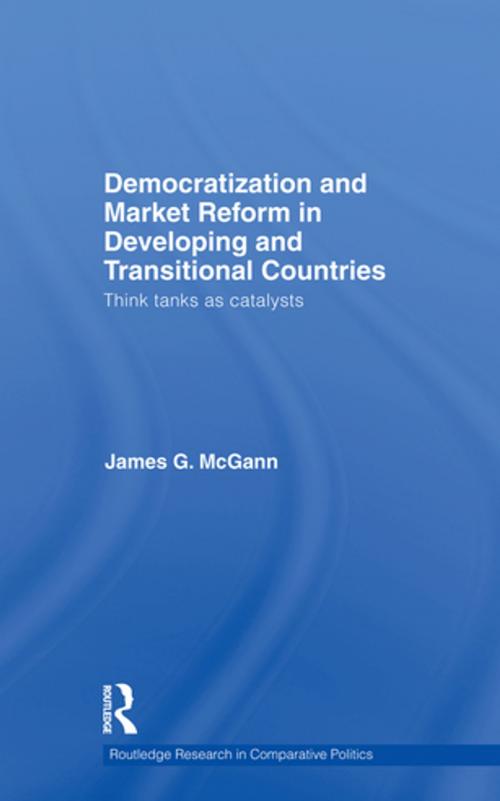Democratization and Market Reform in Developing and Transitional Countries
Think Tanks as Catalysts
Nonfiction, Social & Cultural Studies, Political Science, Government, Democracy, Politics, Economic Policy| Author: | James G. McGann | ISBN: | 9781135224929 |
| Publisher: | Taylor and Francis | Publication: | January 4, 2010 |
| Imprint: | Routledge | Language: | English |
| Author: | James G. McGann |
| ISBN: | 9781135224929 |
| Publisher: | Taylor and Francis |
| Publication: | January 4, 2010 |
| Imprint: | Routledge |
| Language: | English |
This book explores the pivotal role of think tanks in the democratization and economic reform movements by evaluating their overall effect on the transformation process in developing and transitional countries around the world.
James G. McGann assesses twenty-three think tanks, located in nine countries and four regions of the world: Chile, Peru, Poland, Slovakia, South Africa, Botswana, the Philippines, Thailand, and Vietnam, that have most impacted political and economic transitions in their respective countries. The author examines the role they played in the process of democratization and market reform during the late 80s and 90s and identifies the importance of think tanks in these processes by evaluating their overall effect on the policymaking process. He argues in the early stages of a transition from an authoritarian regime to an open and democratic society the activities of think tanks are especially critical, and they have provided a civil society safety net to support these fragile democracies.
This book will be of interest to students and scholars of political science, democratization, development, economic development and civil society.
This book explores the pivotal role of think tanks in the democratization and economic reform movements by evaluating their overall effect on the transformation process in developing and transitional countries around the world.
James G. McGann assesses twenty-three think tanks, located in nine countries and four regions of the world: Chile, Peru, Poland, Slovakia, South Africa, Botswana, the Philippines, Thailand, and Vietnam, that have most impacted political and economic transitions in their respective countries. The author examines the role they played in the process of democratization and market reform during the late 80s and 90s and identifies the importance of think tanks in these processes by evaluating their overall effect on the policymaking process. He argues in the early stages of a transition from an authoritarian regime to an open and democratic society the activities of think tanks are especially critical, and they have provided a civil society safety net to support these fragile democracies.
This book will be of interest to students and scholars of political science, democratization, development, economic development and civil society.















